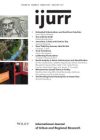Enhancing local democracy and empowering communities in decision‐making are top priorities of European political agendas. However, the abundance and heterogeneity of existing examples of inclusive practices have provoked an ongoing debate on the implications and outcomes that deliberation might generate under specific conditions. Among these practices, urban regeneration is usually welcomed as a vehicle for engaging communities in public decision‐making; nevertheless, the specific participative settings designed to implement those programs tend to generate peculiar communicative dynamics, which can in turn lead to unexpected results. The specific manner in which participation is set up by local governments does influence empowerment results. This hypothesis is verified through a cross‐case comparison of two neighbourhood regeneration initiatives in Copenhagen and Milan. The empirical results show to what extent issue‐centred and structural models of participation differ in terms of the institutional devices they adopt, the type of participants, the nature of the controversies occurring, and the empowerment outcomes. Furthermore, participatory settings tend to reproduce institutionalized practices of interaction between third‐sector agencies, voluntary associations and public authorities. Specifically, consolidated third‐sector regimes in Denmark and Italy tend to influence the devices that their local governments adopt in order to engage local civil society.
Details
Written by:
FEDERICO SAVINI
Digital Object Identifier (DOI)
10.1111/j.1468-2427.2010.00997.x
About DOI
Read full article as PDF
Read full article as HTML
See the references for this article
